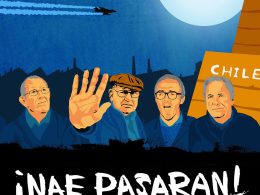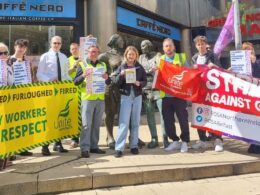By Amy Ferguson
Ulster Unionist Party leader, Doug Beattie, has been dragged into the spotlight over a chain of old (and despicable) tweets depicting his own sexist, racist and ableist attitudes. These range from racial slurs to ‘jokes’ about women’s role being in the kitchen and the objectification of women’s bodies. The unearthed tweets reflect not just a couple of throwaway comments (not that the content of those could be justified either) but a pattern of behaviour that shines a spotlight on his attitudes towards marginalised groups.
Beattie has since apologised for these tweets saying that he feels “deeply ashamed” and that his “actions going forward will be consistent with the values [he] hold[s].” Since then, however, he has also liked a number of tweets stating that he has nothing to apologise for… so which is it? Since Beattie’s apology, other public representatives, including three Sinn Féin MLAs, have also had to come out and apologise for their sectarian, anti-working class, ableist and racist past comments. What do these tweets and the response to them tell us about attitudes in Northern Ireland?
Attitudes in society
The fact that such sentiments were tweeted only approximately ten (or less) years ago and were not met with the same outrage is an indication of how prevalent these attitudes were in politics and the media, and in turn throughout society. In particular, it shows us that we cannot trust the establishment parties to change the problems that they are a part of. Remember that in 2012, when many of these tweets are dated, whilst these politicians were unashamed about being publicly bigoted, a march of 20,000 ordinary working-class and young people took place on the streets of Belfast for marriage equality. It demonstrated a turning point in the outlook of young and working-class people about the importance of protecting and fighting for marginalised groups.
In the past decade, we have seen significant protests and movements erupt over LGBTQ+ rights, abortion rights, ending gender-based violence, black lives matter, as well as movements against climate catastrophe and a rise in the number of disputes in workplaces for better working conditions.
In the process of these struggles, our movements have brought together working-class people across all ages, genders, races, sexualities etc. to acknowledge our shared interests and to learn more about the oppression and exploitation we face. This has resulted in an increased ability to recognise and challenge prejudiced sentiments within our communities. Reflecting this, in the most recent NI Young Life and Times survey, a question asked young people to “Rank in order of priority from 1-7 (1 being the highest and 7 the lowest priority) what you think is important for politicians to focus on in Northern Ireland?”. The overall highest ranking priority was ‘Equality and human rights, including tackling racism and sectarianism.’ Of course, whilst we’ve come a long way there is still a lot further to go.
Fighting oppression and division
These tweets and the actions (or, more accurately, inactions) of the establishment parties show that we cannot trust them to make the changes necessary. Such parties rely upon and foster division to keep our communities and movements divided; they poll best in elections when they have ordinary people pointing the finger at each other over the problems they’ve created. They uphold a society in which racist, sexist and sectarian comments are allowed to flourish.
That these sentiments were uncovered at a time when the UUP was trying to rebrand itself as the ‘liberal’ and ‘progressive’ says a lot. The establishment parties don’t cut it. They don’t care about the issues so many of us fight for on a daily basis. We know we deserve better, and our recent victories and protests, abortion rights, marriage equality and with huge BLM mobilisations show that we can win better when we take action ourselves.
In order to make real change, we must harness our anger and channel it into a sustained working-class movement, organised in every community, school, college and workplace. In doing so, building a new party from the ground up, for and by the working-class and other oppressed people, to organise our campaigns and to give ourselves a political voice, is not just crucial, but long overdue. Such a party can fight to end the rule of this oppressive and exploitative capitalist system and fight for a humane, democratic and socialist society built on equality and solidarity.












